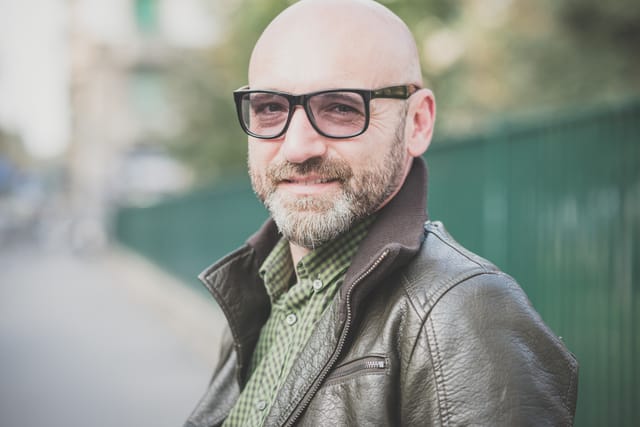Not everyone has a warm and loving upbringing. It can be tough for those who grew up in difficult homes to open up about those experiences, especially when they haven’t started working through them or even grasped how traumatic they were. However, there are some subtle traits an adult may exhibit that signal that they had an unhappy childhood, even if they’re not ready to share those experiences yet. Identifying these behaviors can help you to better understand and support yourself or someone you love.
1. Discomfort accepting compliments

People who grew up with parents who either weren’t present or nitpicked everything they did may develop self-esteem issues. They may be overly critical of themselves or accustomed to undermining their achievements or aspects of their personality. As a result, they may struggle to accept praise or compliments because they’re not used to getting them, per a study published in the Journal of Experimental Social Psychology.
You may also like: These 16 Types of People Are Red Flags In Disguise
2. Heightened sense of responsibility

As a child, you start out relying on your caretakers for help navigating life. When they consistently fail to show up, the child starts figuring out how to do things on their own. Over time, they internalize the idea that no one is coming to help them, and it’s up to them to take charge of everything. So even now, many years later, they may struggle to accept help from others and always cast themselves in the role of caretaker/problem-solver because that’s what safety looks like.
Don’t miss out – follow Bolde for exclusive content daily
3. Flinching for no obvious reason

You accidentally slam the door and they leap out of their chair. You randomly try to touch them or reach for something next to them and they wince in anticipation. Someone makes a loud noise or raises their voice slightly and they instantly flinch. These subtle behaviors are indicative of hypervigilance. People who grew up in abusive or unstable households may have overdeveloped flight or fight responses that leave them constantly on alert and triggered by perceived dangers or threats.
You may also like: 15 Things People Who Don’t Put Up With Anyone’s BS Have In Common
4. Crippling levels of perfectionism

One of the ways that some children learn to deal with chaotic home lives is by trying to control everything that they can to minimize unpredictability. They avoid making mistakes and push themselves to attain perfection every time because they think it’ll somehow earn them the affection of their caretakers or keep them from getting rejected, punished, or criticized. When taken to the extreme, the effects of perfectionism can be downright debilitating, the Kellogg School of Management at Northwestern University points out.
Don’t miss out – follow Bolde for exclusive content daily
5. Excessive apologizing

When someone gets picked on or criticized a lot as a kid, they might start to see yourself as a screw-up because they’re being told all the time that everything is their fault. Because of this, they might get into a habit of over-apologizing even if the mistake is insignificant or when the outcome is not within their control.
You may also like: 20 Ways A Narcissist Acts When They Can’t Control You
6. Pathological people-pleasing

Per Medical News Today, a people pleaser is someone who goes out of their way to keep everyone around them happy, often at their own expense. It’s normal to want others to like us and to try to make them happy to achieve this outcome. But for people who had a tough childhood, their ability to please others might be what stands between them and a beating or verbal abuse. They learn very quickly to put other people’s needs, feelings, and happiness ahead of their own to survive.
Don’t miss out – follow Bolde for exclusive content daily
7. Difficulty trusting others

Parents and caregivers are meant to be your first refuge in the world. When a child is constantly let down, betrayed, or violated by the people who are supposed to love and care for them, it builds distrust toward everyone else. The child grows into an adult who is reluctant to get close to people because they know that to trust is to risk getting hurt. They’re terribly afraid of giving anyone else the power to hurt or disappoint them.
You may also like: 30 Things Men Do When They’re Having A Midlife Crisis
8. Inability to accept good things at face value
Some people are reluctant to accept favors from others. When you do nice things for them, they question your intentions because they can’t believe you’re being kind to them out of the goodness of your heart. This behavior could stem from childhood experiences. Maybe every time something good happened to them, it was usually followed by something bad. So now, they’re skeptical whenever someone offers them help or when they’re the recipient of good deeds.
Don’t miss out – follow Bolde for exclusive content daily
9. Maintaining perfect calm in dire situations
When a situation arises that will have most people freaking out, super stressed out, and scrambling to find solutions, they’re able to stay calm and collected. They can stand back and remain clear-headed until the emergency or chaos subsides. While this may seem like an amazing characteristic to have, it could mean that the person became accustomed to putting out fires early in their lives so that their brain no longer registers the intensity of stressful situations.
You may also like: 15 Adult Traits of People Who Were Bullied As Kids
10. Crying during conflict
Conflict in my household meant raised voices, cutting insults hurled with precision, and physical violence, so I never learned a healthy model for conflict resolution before I began therapy. Whenever a conflict arose, I’d tense up, start to panic, or break down in tears because my mind would take me back to that scared, helpless little child who felt they couldn’t do anything to manage the situation. This is common among people with traumatic childhoods, sadly.
Don’t miss out – follow Bolde for exclusive content daily
11. Super-defensiveness about everything
People who were often corrected or punished for every little thing may become very averse to criticism because they fear what may come next. They will immediately go into defensive mode or even shut down completely when you bring up something that they did wrong, no matter how minor. It doesn’t matter that they’re adults now and no one is going to hit or berate them for their mistakes, they’re still not going to stand for it.
You may also like: People Who Lack Self-Awareness Frequently Say These 14 Things
12. Being overly sensitive to people’s emotions or reactions
Growing up in an abusive family, I got pretty good at reading the movements and emotions of the people around me because it was essential for survival. Being able to tell my father’s mood by the look in his eyes or the way he walked or knocked on the door meant that I could get ahead of it and potentially avoid the worst of his rage. I’m a long way from my childhood, but I’m still learning not to obsessively analyze people’s non-verbal cues.
Don’t miss out – follow Bolde for exclusive content daily
13. Disproportionate reactions to their minor mistakes
If you notice that someone gets incredibly frustrated, beats themselves up, or won’t stop apologizing whenever they make a small or silly mistake like spilling their drink, it could be a sign of an unhappy childhood. They overreact this way because their brains have been trained to associate mistakes, no matter how small, with imminent danger. So even now they’re afraid of being punished or berated for screw-ups.
You may also like: People Who Rarely Exhibit Empathy Usually Have These 16 Traits
14. Constant self-deprecating humor
A study published in the Indian Journal of Psychiatry (via the National Institutes of Health) confirmed that self-deprecating humor is often a defense mechanism. People who had unhappy childhoods may turn to humor as a way of coping with the situation. They think that if they can joke about themselves or what’s happening to them and make other people laugh, it won’t feel so bad. Naturally, they carry that behavior into adulthood. However, it’s easy to dismiss this as them just being cool, funny, or aloof.
Don’t miss out – follow Bolde for exclusive content daily
15. Being overly agreeable
Another subtitle sign that a person might have had an unhappy childhood is when they have no strong opinions or feelings of their own. They just go along with other people’s choices most of the time. They want to go dancing, but you want to go drinking, so they compromise and you go drinking. Rinse and repeat! They probably spent their childhood being pushed over and having their thoughts and opinions dismissed, so they’ve learned to just go with the flow and not upset the balance.
Enjoy this piece? Give it a like and follow Bolde on MSN for more!











